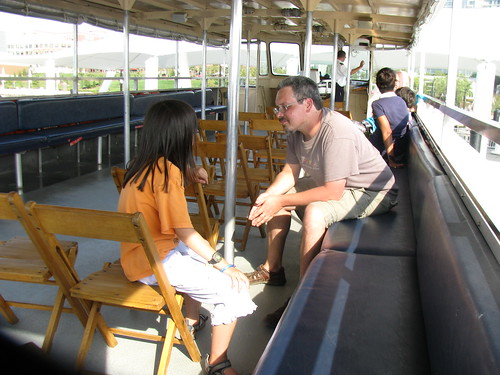|
|
Saturday, March 8th, 2014
from Funeral oration, at the death of JoaquÃn Pasos
by Carlos Martinez Rivas
tr. Jeremy Osner
The drum beat echoing across
the little parade ground,
as if we were at the funeral of some Hero:
that's how I'd like to begin. And just
as must be done, in these Rituals of Death, I'd like
to forget his death; to look to his life --
to the lives of all the heroes now extinguished,
heroes who just like him lit up the night down here --
for many is the young poet who has died in our time.
Across the centuries they call out and we hear
their voices blazing, their distant canticle --
from the depths of the night they call out and reply.
There's not so much that we can know of them: that they were young,
that their feet strode upon this earth. That they knew how to play some instrument.
That they felt the ocean breeze across their forehead,
and looked up to the hills. They loved some girl,
and scribbled all this down til late at night, and crossed lines out,
and one day died. And now their voices blaze in the night.
posted morning of March 8th, 2014: Respond
➳ More posts about Poets of Nicaragua
|  |
Sunday, March second, 2014
posted evening of March second, 2014: Respond
➳ More posts about Pretty Pictures
|  |
Saturday, March first, 2014
posted morning of March first, 2014: Respond
➳ More posts about Reading aloud
|  |
Thursday, February 27th, 2014
Here is a poem I have been working on this week. The genesis is as follows: I was thinking about my poem Analogies for Time, and also about the Persistence of Memory. I thought, well, the Persistence of Memory is a suspension of time, time does not progress in a painting, the time on the melting watch will always be 6:55 and the watch will never melt away -- from all this came the line "No hay rÃo para correr a través de este paisaje soñado" -- it's a landscape without a river. Well: a promising line. I spent a while tossing it around and it is seeming not to be so much a poem about that painting, but about a landscape that is outside of time. (Possibly this landscape could be the setting for the eternal city in "El inmortal".) Here is what I've got so far:
No river flows through this immortal landscape, dry and still.
No hunter seeks the spoor of his hallucinated prey.
The jagged cliffs look down on desert -- cliffs of granite, dreary desert --
static sands untouched by wind or moisture, waiting still
for time eternal, the imagined camera pans and zooms
but finds no hint of motion, no decay,
no sign of change for good or ill.
posted evening of February 27th, 2014: Respond
➳ More posts about Poetry
|  |
Monday, February 24th, 2014

posted evening of February 24th, 2014: Respond
➳ More posts about Don Quixote
|  |
Saturday, February 15th, 2014
¿Recuerdas bien cuando nos encontramos
en Gomorra? Cuando aún no tenÃas barba --
y yo engrasaba el pelo, iluminada por el farol antes de
verte; éramos jóvenes y con esa juventud nos sonrojábamos
como frutas magulladas. ¿Nos interesó entonces
lo que pasara entre los vecinos
en la oscuridad?
Mientras nos nacÃa la primera hija
al lado del rÃo Jordán, mientras
la rosada cabeza de la segunda
se esforzaba, saliendo de mi cuerpo
como promesa ¿nos preocupó
cómo usaran la lengua
los amigos?
O ¿cuáles grietas nuevas encontraran
para lamer el amor? o ¿cuál carne extraña
encontraran para empujar el placer? En llamarlo
entonces a uno sodomita,
sólo quisimos decir
vecino.
Cuando nos mandaron los ángeles correr
de la ciudad, te acompañé;
pero eses ángeles sabÃan también
que mira la mujer siempre atrás.
Déjame asà decirte, Lot,
cómo lucÃa tu ciudad en llamas
puesto que tú nunca te volviste para mirarla.
Los dedos pegajosos del azufre se arrastraban sobre la piel
de nuestros compatriotas. A pelo quemado apestaba
y a huevos rancios. Observé a los amigos sacando trozos
ardiendo de sus rostros. ¿Hay una forma
tan obscena de amar?
Cúbrete los ojos con fuerza,
hombre, hasta que veas las estrellas. Convéncete
de que miras el cielo.
Pues el hombre que es bastante débil para cerrar los ojos mientras
se castiga a los vecinos por la forma en que se aman merece a un dios
malévolo.
Todo esto te lo dirÃa, Lot,
si no se me hubiera secado océano en la lengua.
En lugar de eso me quedaré aquÃ; mi cuerpo soplará
grano a grano de regreso a la tierra de Canaán
Voy a quedarme aquÃ
y te veré
correr.
posted afternoon of February 15th, 2014: 2 responses
➳ More posts about Translation
|  |
Sunday, February 9th, 2014
Nuestro tesoro es el vino y nuestro palacio la taberna.
La sed y la embriaguez son nuestras fieles compañeras.
I
Todos saben que jamás murmuré una oración.
Todos saben también que jamás traté de disimular mis defectos.
Ignoro si existen una Justicia y una Misericordia.
Si las hay, estoy en paz, porque siempre fui sincero.
II
¿Qué vale más? ¿examinar nuestra conciencia sentados en una taberna
o posternarnos en una mezquita con el alma ausente?
No me preocupa saber si tenemos un Dios ni el destino que nos reserva.
III
Sé compasivo con los bebedores. No olvides que tú tienes otros defectos.
Si quieres alcanzar la paz y la serenidad,
piensa en los desheredados de la vida y en los pobres que viven en el infortunio.
Entonces te sentirás feliz.
IV
Procede en forma tal que tu prójimo no se sienta humillado con tu sabidurÃa.
DomÃnate, domÃnate. Jamás te abandones a la ira.
Si quieres conquistar la paz definitiva,
sonrÃe al Destino que se ensaña contigo y nunca te ensañes con nadie.
Rubáiyát
Rubáiyát pdf
posted afternoon of February 9th, 2014: 2 responses
|  |
Thursday, February 6th, 2014
What we need is a memoir without a self. A memoir about somebody other than 'me.'
This weekend I started Zachary Lazar's new novel, I Pity the Poor Immigrant, set in New York and Tel Aviv and Jerusalem, and the beginning, middle and end of the 20th Century -- a nice broad span to cover in 250pp! I am enjoying it. The narrative structure of the book is a little different than any I have seen before -- the framing story is told in the first person by Hannah Groff, a journalist. The three framed stories (well there are more than that -- the three main ones) are a first-person narrative of Groff writing an article about the killing of David Bellen, an Israeli poet; a third-person narrative of events earlier in her life; and a third-person narrative of events in the life of Meyer Lansky. I'm finding the middle one of those especially interesting because the narrator is clearly Groff; but she refers to her younger self in the third person. It gives me a little frisson of weirdness every time she refers to "Hannah".
posted evening of February 6th, 2014: Respond
|  |
Monday, February third, 2014
 Very exciting: a school of Spanish-language writing and literature is being launched in Brooklyn under the compelling name of Bolaño's book of poetry. Go to their launch party on Saturday! (I can't make it because I'm going to a poetry workshop at Medicine Show Theater, about which more anon.) I am planning to enroll in the poetry workshop led by Isabel Cadenas Cañon, and maybe also the writing workshop led by Lina Meruane. Can't wait! Very exciting: a school of Spanish-language writing and literature is being launched in Brooklyn under the compelling name of Bolaño's book of poetry. Go to their launch party on Saturday! (I can't make it because I'm going to a poetry workshop at Medicine Show Theater, about which more anon.) I am planning to enroll in the poetry workshop led by Isabel Cadenas Cañon, and maybe also the writing workshop led by Lina Meruane. Can't wait!
posted evening of February third, 2014: Respond
➳ More posts about Writing Projects
|  |
Saturday, January 25th, 2014
My translation (current draft -- there are still a couple of constructions that I'm not 100% sure about to call this "final") of Karen Finneyfrock's astonishing What Lot's Wife Would Have Said (If She Wasn’t A Pillar of Salt):
posted morning of January 25th, 2014: Respond
➳ More posts about The Bible
| Previous posts about Readings
Archives  | |
|
Drop me a line! or, sign my Guestbook.
•
Check out Ellen's writing at Patch.com.
| |












